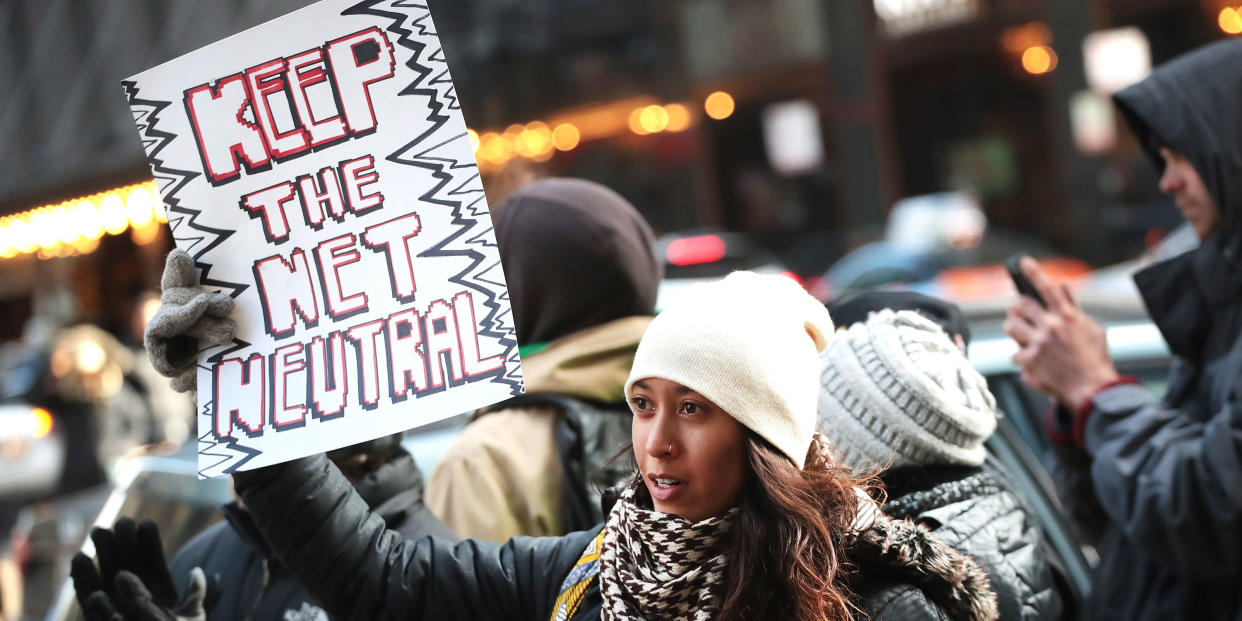Why Every American Should Defend Net Neutrality

Throughout the year, millions of Americans have spoken out in defense of net neutrality. If you haven’t, I think you should. Here’s why.
Right now, when you subscribe to internet service, you get access to all of the internet, no exceptions. Your cable company can’t block or slow down what you read, see, or watch online - regardless of where that content is coming from, who created it, or what it is. Your wireless carrier can’t pick and choose the apps that you download or the devices that you use. That’s all illegal. The fair and open internet is protected by a set of commonsense rules - net neutrality - put in place by the Federal Communications Commission (FCC) in 2015.
That may soon change.
Ajit Pai, the new chairman of the FCC designated by this administration, is forcing a vote this week to get rid of those net neutrality rules. Even more outrageous, he is hoping to ban states from establishing their own consumer protection rules.
What the Trump administration proposes is a big win for multi-billion-dollar broadband companies like AT&T, Comcast, and Verizon. It grants them the legal power to block content from competitors, slow video-streaming services from rivals, and charge businesses more (and by extension charge you more) to deliver their content in special “fast lanes.”
Americans are rightly concerned that the vote will impact their experience online. For example, say you’re a big fan of Stranger Things, and the only broadband provider in your town has its own streaming service that rivals Netflix. What would happen if your broadband company decides to slow Netflix way down - leaving it to buffer for eternity? Or, worse yet, what if they decide to block it entirely?
Net neutrality is about more than protecting the online experiences that you already have. It’s also about enabling the future of online innovation.
Etsy was launched out of a Brooklyn apartment and Glossier grew out of a beauty blog. When Airbnb started, it was just three guys renting out air mattresses. If these entrepreneurs had been forced to pay extra fees to your service provider or were blocked by your service provider, would their companies have become household names or even exist?
Repealing the net neutrality rules probably won’t harm established online services with deep pockets. They will likely be able to pay the broadband providers additional fees to deliver their content, but small businesses and startups are rightly worried. In short, the fight for net neutrality isn’t about saving Netflix, it’s about saving the next Netflix.
The internet enables entrepreneurship on a level playing field. Anyone can become an overnight sensation based on the quality of their work, regardless of how much money they have, their gender, the color of their skin, or where they were born. This fight is about protecting a competitive online marketplace, where the next great idea can come from anyone, anywhere.
We can’t count on the free market to protect broadband consumers and online competition, because most Americans don’t have much choice among internet service providers. For example, in my home state, about one in three Californians has no meaningful choice in residential broadband. And more than 80 percent of Californians are stuck with a choice of, at most, just two residential service providers. This is precisely the type of market where an expert federal agency should provide regulation.
We need to take this fight very seriously. You have my promise that I will do all I can to protect net neutrality, but we need your voice. In the next few days, I urge you to join the millions of Americans who have contacted the FCC and expressed their views on protecting the fair and open internet.
Kamala Harris is a Democratic senator from California. Follow her on Twitter.
You Might Also Like
